Part 44: Europa Universalis III: Chapter 14 - Diplomatic Offensives: 1540 - 1560
1540 - 1560: Diplomatic Offensives
Waldemar V passes the Heretico Combernuedo Act in January of 1540, in an effort to further clamp down on the Reformation by making it illegal to own the Brandenburg Bible - or any other translation of the Holy Texts for that matter.


The conversion of the newly annexed Switzerland is complete in 1543, Swabian missionaries proving just as successful against Lutherans as against Muslims and Cathari.

Cultural assimilation of the Rheinland also progresses steadily, with Swabian traditions becoming ever more prevalent.
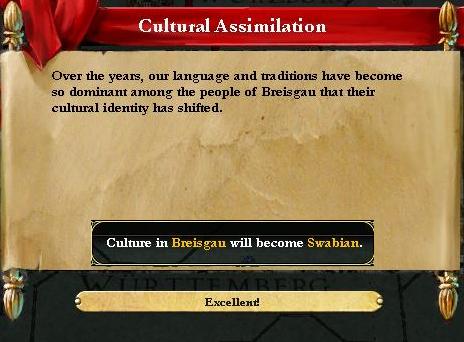
Hesse is dragged into a war against France in February of 1545 and suffers a crushing defeat in which they are forced to cede Berg and become a French vassal.
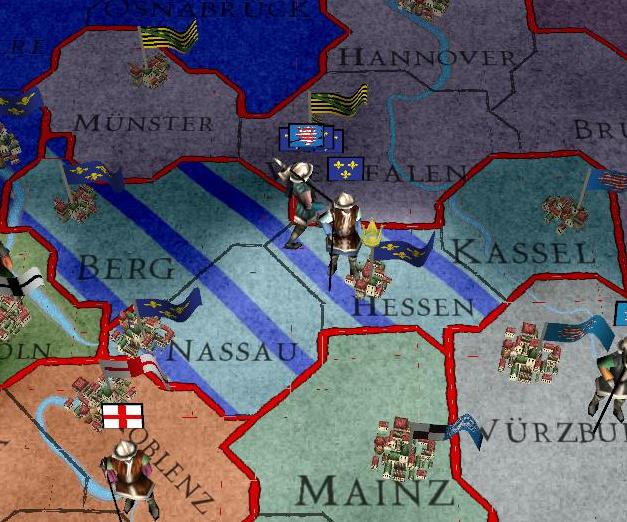
The French advancing into the Rheinland again is unacceptable to Waldemar, who begins to mobilize, sending the newly rebuilt Imperial fleet to ship troops back from Mallorca into Italy.
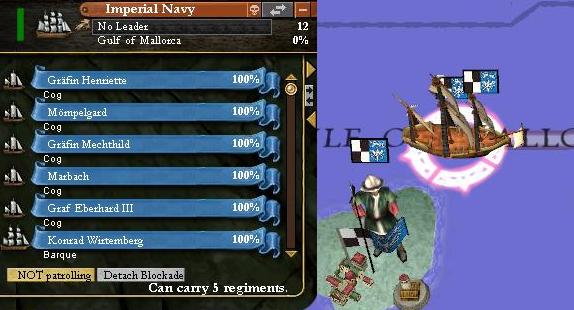
Recruitment for the newly established 4th Imperial Army is speeded up, and it is deployed to Mainz in November of 1546.
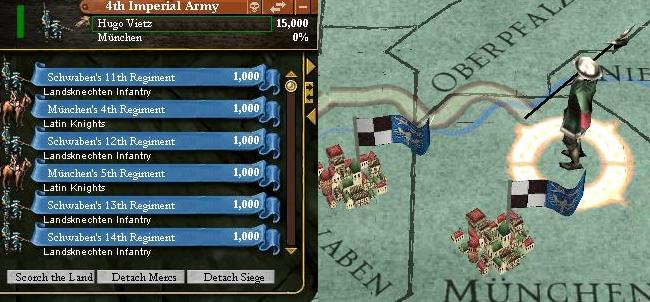
In March of 1547, war is declared against France.
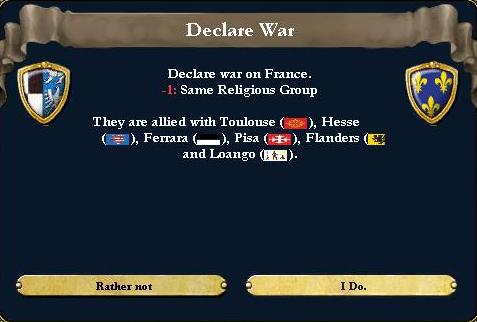
Swabia's coalition is roughly equal in strength to France's, though it is unlikely Great Britain will contribute with all that many troops. Instead, Waldemar is relying on the British fleet to blockade France and its allies in order to strangle access to basic goods in an already war-tired France.
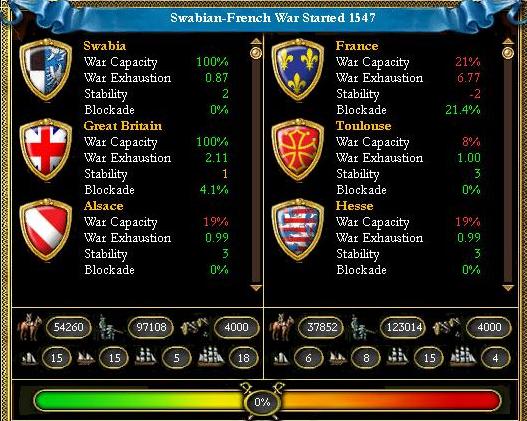
The Imperial Fleet initiates a blockade of its own against France's allies Pisa and Ferrara.

Evidently unprepared for Swabia's attack, King Francois II asks for an armistice, but is denied.

Swabian troops advance into France, winning several victories and beginning to besiege French border cities.


Unfortunately, that is as far as they get, as an overwhelming mass of French troops counter-attack in Autumn of 1547, driving the Swabians out of Franche-Comte and Bern.
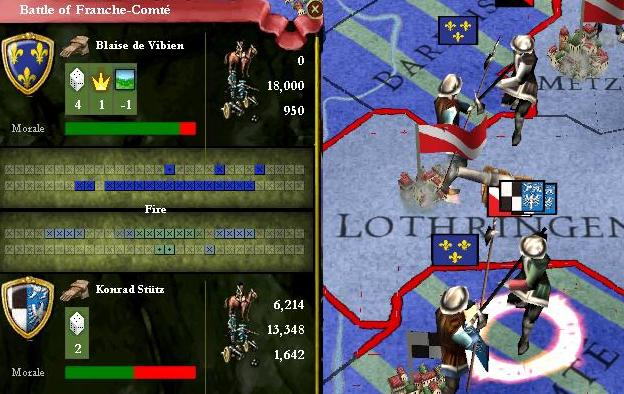
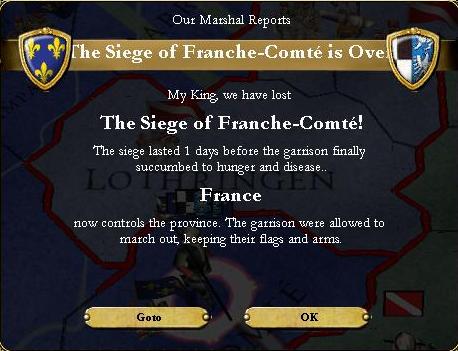
By spring of 1548, all Swabian-occupied territories have been retaken, and French offensives have been launched into Alsace and Trier.
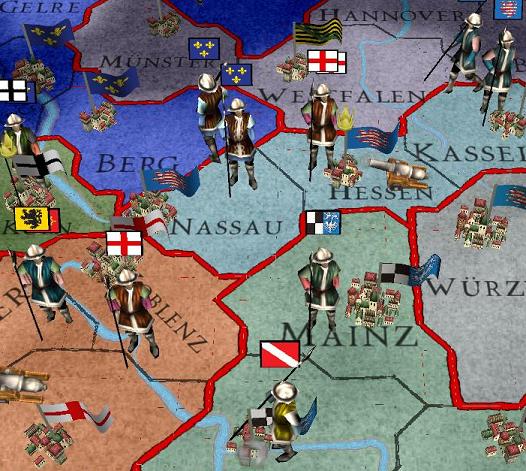
What Waldemar V had failed to anticipate was that the French learned their lesson from the last war all too well, adopting Swabian military drill practices and replacing their peasant levies with professional army corps. Fortunately, French public will to continue the war is buckling in face of the complete blockade of its ports, and with some skillful negotiation, Waldemar is able to force through quite favorable peace terms, making France release the province of Berg as the independent Duchy of Cleves and breaking its vassalage bonds to Hesse, returning the Rheinland in its entirety to the Empire.
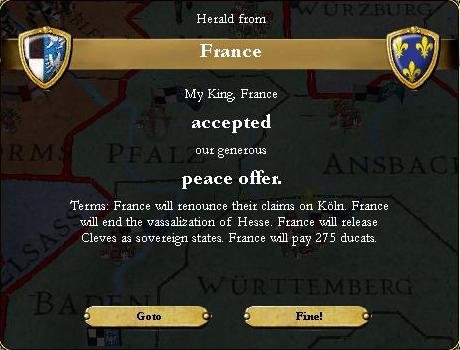
Waldemar spends most of 1548 and 1549 overseeing his most ambitious reform thus far - a massive archectural development program that sees Württemberg, Mainz and several other large cities rebuilt in Italian Renaissance style.

Waldemar V passes away in November of 1549. He could have been the greatest ruler in Hohenzollern history but ended up hogtied by Reichstag policy, forced to idly stand by in the face of French expanionism and religious dissent. Beloved by the people for his internal reforms, he nonetheless was never given the chance to show his real potential.
The election is a close one, with both Swabia and Meissen gaining three votes each, Tuscany switching its vote to Swabia in the last second to avoid being ruled by a Cathari Emperor.
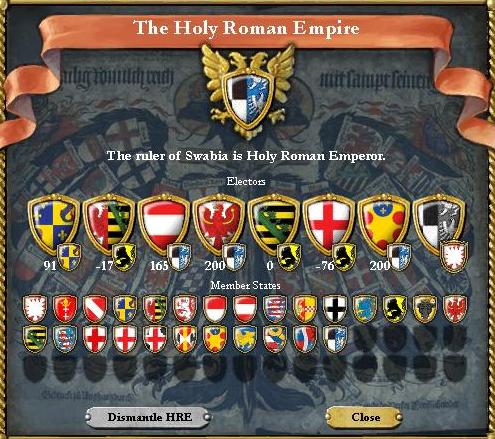
The new King of Swabia and Emperor of all Romans is Waldemar's son Ernst III. Having inherited much of his father's diplomatic and military talent, he is sadly disinterested in affairs of state, preferring to travel abroad and dream up grand military adventures, even confiding in a few close friends his ultimate dream of reuniting the West and East Roman Empires.

The French-Iberian border explodes into a hotbed of French-supported rebellions in 1550, as Aragon, Avignon and Aquitaine all rise against their Iberian overlords.

Construction of a textile manufactory begins in Schwaben in February of 1550.
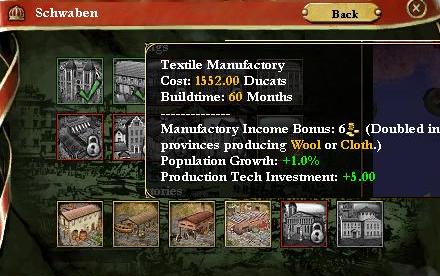
Relations between Pommerania and Swabia remain good, despite differences in religion, though Ernst III's disinterest in his subject country's management causes protests from its nobility now and then.
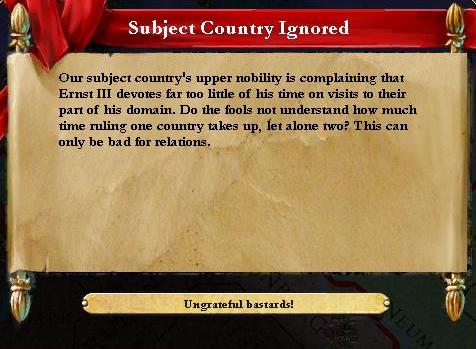
Ernst III purchases some of the first reliable seacharts of the coasts of the New World from a British merchant in 1555. Little remains known of what lies inland, though the British merchant makes mention of Moroccan fleets regularily moving to and from most of the various Caribbean islands.

Waldemar's war with France revealed the need for additional military reforms, and a number of Dutch mercenary captains are hired to organize Swabia's troops after the Maurician Infantry model, a musket-equipped formation invented by Cathari rebels in the Netherlands.
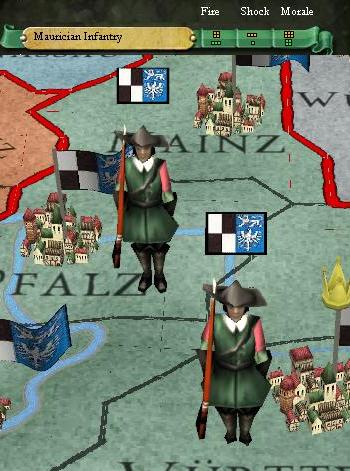
The Pope Pius III passes away in winter, and the new pope, Pius IV, is a Swabian, granting Ernst considerable influence with the Curia. The French on the other hand have been spoiling their relations with Rome, and Ernst uses this situation to arrange for an old favor to be repaid to Francois II, having the French King excommunicated.
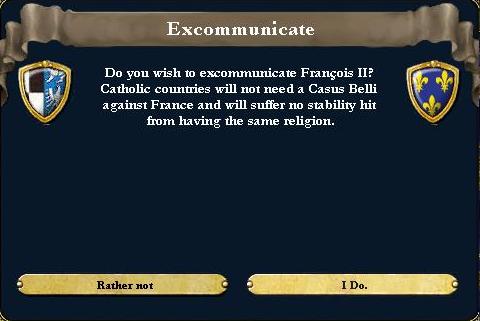
By Pius III's request, he takes a concilliatory approach to the Papal ally Pisa, rebuilding relations with expensive gifts and a few insignificant border concessions.
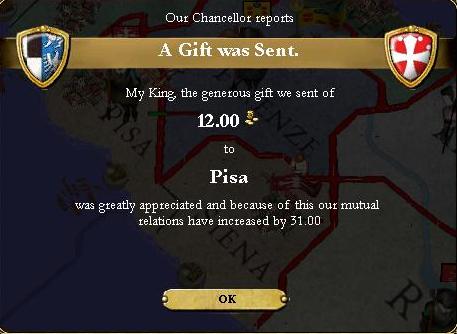
Dauphine annexes the County of Piedmont in November of 1559. With its earlier annexation of Savoy, Dauphine has now grown into the single largest Cathari state in the world and a regional powerhouse.
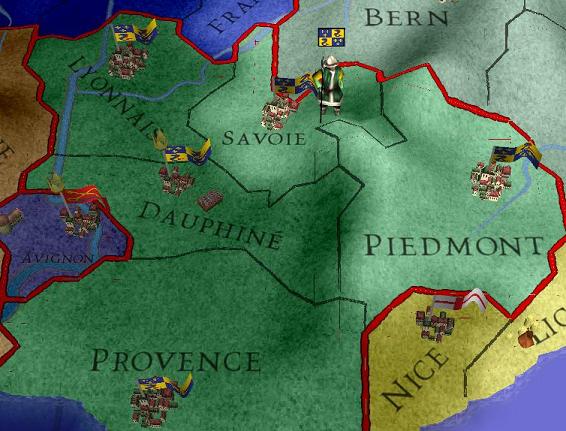
The Reichstag Assembly of 1560
The Reichstag convenes in January of 1560 to debate policy. Three propositions are once again up for vote before the Reichstag.
The Imperial Navy Expansion Proposal is back once more, having been given fresh support by the naval victory over France and its allies, showing how much more important a high seas fleet is becoming in the age of colonialism, not to mention the tantalizing prospect of being able to support colonies in the new world and Africa.
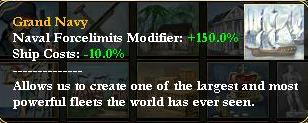
The Battlefield Commissions Act is an attempt to professionalise the Officer corps of the Imperial Army further, so that valuable experience gained in wars is not lost in times of peace. This proposal would markedly improve the quality of the Swabian Officer Corps and the skills of its generals.

The Imperial Administration Reform Act would remodel Imperial government after Iberian ideas, establishing a baseline of competence required by public servants and creating oversight for tax collectors and courts to combat corruption. This proposal would make tax collection more effective and smoothen the way for future technological development in governmental and economic matters.
